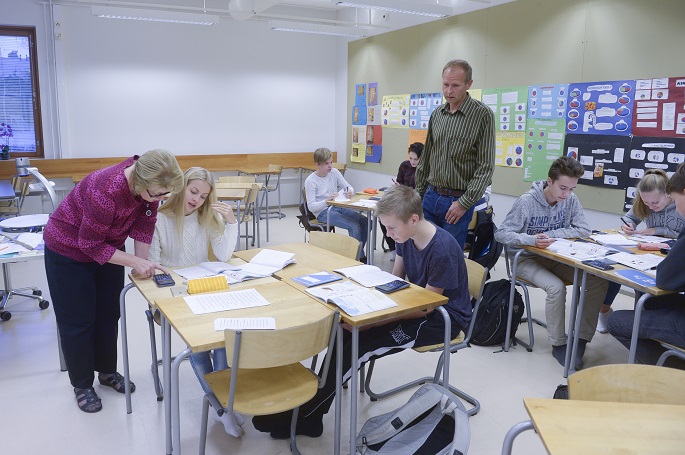OECD comparison
Socio-economic background impacts on educational choices
Published : 18 Sep 2021, 01:31
Updated : 18 Sep 2021, 01:34
Education enables people of all ages and backgrounds to acquire skills that help them obtain better jobs and a better life, according to the Organisation for Economic Co-operation and Development (OECD).
The OECD published its annual indicator on Thursday comparing education systems, Education at a Glance, said the Ministry of Education and Culture in a press release.
The special theme of this year’s publication was equality in education. The report focused mainly on 2019.
Both in OECD countries and in Finland, a young person whose both parents are not highly educated is less likely to enrol in upper secondary school and will miss out on an upper secondary education degree more often than average.
The lack of such a degree makes people vulnerable in the labour market. In 2020, the unemployment rate of young adults in OECD countries without upper secondary education was about twice that of tertiary graduates.
Children and young people with an immigrant background are generally at a disadvantage compared to their peers in terms of participation in education, and an immigrant background also affects the amount of benefit gained from education in the labour market.
Gender differences are also persistent and impact educational pathways and opportunities in the labour market. In both OECD countries on average and in Finland, boys are more likely than girls to repeat a year, score lower in literacy assessments, and are less likely to graduate from upper secondary school.
Boys are less likely to enrol in tertiary education and graduate with a tertiary degree than girls. Men are also less likely to enrol in vocational adult education than women. Despite this, women earn less and have fewer employment opportunities in comparison with men.
There is still a lack of data on the impacts of COVID-19 on education. However, it is already clear that the challenges posed by the pandemic are not evenly distributed.
Those already disadvantaged have been hit the hardest, further worsening inequality. Disadvantaged children and young people have often had less opportunities to switch to distance learning compared to their peers. The pandemic has increased the risk of dropping out from school, especially among those from disadvantaged backgrounds.
“The report shows that Finland must continue determined work to improve the equality of education. Finnish education is still among the best in the world, but inequality is now a real threat to learning outcomes. The work has started, and we are investing heavily in ensuring that each student’s local school continues to be ranked among the best in the world,” said Minister of Education Li Andersson.
“Every child and young person must be given the opportunity to succeed, based on their talent and motivation – regardless of family background, place of residence and other factors. During this government’s term, we have, among other measures, improved access to higher education across Finland and investigated obstacles to the accessibility of higher education. However, much remains to be done to achieve this goal,” said Minister of Science and Culture Antti Kurvinen.


